
Eclipse and Re-emergence of the Communist Movement
Gilles Dauv and Franois Martin
Voices of the Paris Commune
edited by Mitchell Abidor
From Crisis to Communisation
Gilles Dauv
Death to Bourgeois Society: The Propagandists of the Deed
edited by Mitchell Abidor

Eclipse and Re-emergence of the Communist Movement
Gilles Dauv and Franois Martin
This edition copyright 2015 PM Press
All rights reserved. No part of this book may be transmitted by any means without permission in writing from the publisher.
ISBN: 9781629630434
Library of Congress Control Number: 2014908066
Cover by John Yates/Stealworks
Interior design by briandesign
10 9 8 7 6 5 4 3 2 1
PM Press
PO Box 23912
Oakland, CA 94623
www.pmpress.org
Printed in the USA by the Employee Owners of Thomson-Shore in Dexter, Michigan. www.thomsonshore.com
Note: Half of the texts in the present book were written and made public in France between 1969 and 1972. This anthology is published for the third time (or the fourth including a partial Japanese edition). Instead of adding yet another preface, the editors thought it better to end the book with a postlude in order to take stock of how times have changed since the 1970s.
In this PM Press edition, extensive changes have been made in chapters 1, 2, 3, and 4. , the postlude.

CONTENTS
 PREFACE TO THE JAPANESE EDITION OF NO. 1 AND NO. 2 OF LE MOUVEMENT COMMUNISTE
PREFACE TO THE JAPANESE EDITION OF NO. 1 AND NO. 2 OF LE MOUVEMENT COMMUNISTEThe first two essays in this book were translated and published in Japan in the 1970s. Here is the 1973 preface, modified and abridged with new notes added.
In France, as everywhere else, what is usually known as Marxism has nothing to do with revolution. In this topsyturvy world, wage-labourers are exploited in socialist countries, while communist parties support capitalism in more ways than one. Communism has become a synonym for working hard and obeying ones socialist boss. Most parties called communist have been and are nationalist, colonialist, and imperialist. As Paul Mattick wrote at the close of the Second World War: Today every programme and designation has lost its meaning; socialists speak in capitalistic terms, capitalists in socialistic terms and everybody believes anything and nothing. This situation is merely the climax of a long development which has been initiated by the labour movement itself. Only by standing outside the labour movement has it been possible to work towards decisive social changes.
The first condition for a minimum revolutionary action is indeed to stand outside and break with all forms of Marxism, whether they come from CPs or left-wing intellectuals. Marxism is part of capitalist society in its theory as well as its practice.
At the same time, capital is trying to defang it, and is preparing to destroy it violently if it cannot be deflected. The re-emergence of revolution is accompanied by many forms of superficial criticism which do not go to the heart of the matter, and help capital adapt itself. Obviously radicalisation results from diverse experiences. But pseudo-revolutionary groups deliberately gather people on partial demands in order to prevent them to go any further. They claim to go back to revolutionary principles, but are ignorant of them. At best, their view of communism mixes a partial social re-shuffling with democratic worker control or management, plus automation. In other words, no more than what capital itself talks about. They critically support the official CPs, socialist parties, the USSR, China, Cuba, etc. These groups are counter-revolutionary. The argument that they organise workers is irrelevant: CPs do the same, which does not prevent them from repressing workers when they think it necessary. Trotskyism, Maoism, even anarchism in some bureaucratic and degenerated forms, are counter-revolutionary.
Past experience shows why demarcation lines are necessary. In 1939, the capitalist system could only recover through a full-scale worldwide war. Russia had been forced to develop capitalism after the defeat of revolution in Europe, and was ready to ally with one side or the other according to its State interests. Germany, Italy, and Japan were fascist. In the Western democracies, socialist and communist parties managed to rally the masses and persuaded them that unlike 191418, the new world war was to free mankind from the horrors of dictatorship. Trotskyism also supported this view and most Trotskyists took the side of the allied powers against Germany and Japan. Yet the triumph of democracy in 1945 has proved destructive. People no longer die in concentration campsexcept where there are concentration camps, as in Russia, China, etc. But millions starve. The extreme left (Trotsky and many others) had helped capitalism rejuvenate itself.
Marx had to fight against Proudhon. Lenin, Pannekoek, Bordiga had to fight against Kautsky. Pannekoek and Bordiga had to fight against Lenin, and later against Trotsky.
The present communist movement needs to assimilate its past, to fully grasp what really happened in 191721 and how today differs from yesterday. Communist revolution will not promote a further development of production: capital has already accomplished this in a large number of countries. The transitional phase will consist of the immediate communisation of society, which includes armed insurrection: the States military might cannot be underestimated. Besides, the working class has become such a potential social force that it is vital for capitalism to control it: this is the job of the unions and workers parties, so one must prepare to confront them.
This is only possible through the implementation of the communist programme: abolition of the market economy; creation of new social relations where labour does not rule the whole of life, but is integrated into it; destruction of economics as such, of politics as such, of art as such, etc.
Speaking of theory, one can and must use Marxs works (which includes translating and publishing them when they are not available). Our motto is: Do not read the Marxists, read Marx! Also it is important for revolutionaries everywhere to study the revolutionary past of their country.
Such activity implies a break with politics. Revolutionaries do not only have different ideas (or even actions) from pseudo-revolutionaries. What they are is different, and the way they act is. They do not try to enrol people in order to represent them and be a power in their name. Revolutionaries are not leaders, educators, memory keepers or information providers. We neither lead nor serve the proles.
Communists are not isolated from the proletariat. Their action is never an attempt to organise others, only to express their own subversive response to the world. Ultimately, revolutionary initiatives will interconnect. But our task is not primarily one of organisation: it is to convey (in a text or an action) an antagonistic relation to the world. However big or small it may be, such an act is an attack against the old world.

FOREWORD TO THE 1974 BLACK & RED EDITION
Small changes have been made and new notes added.
Next page
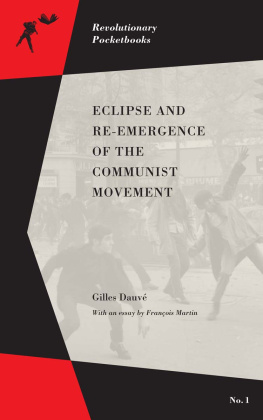
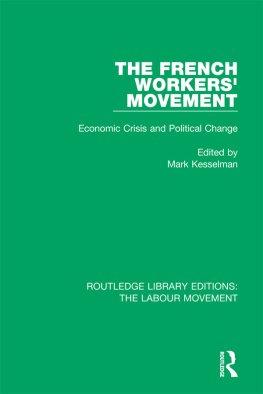
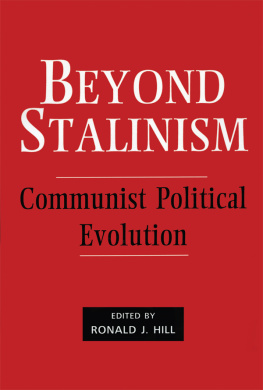
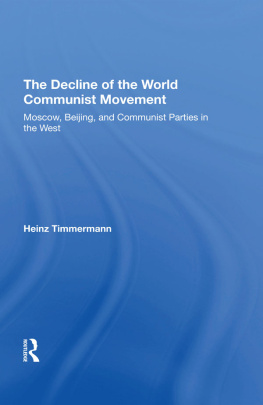
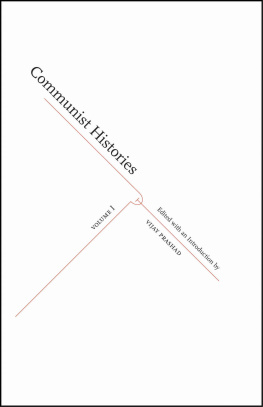

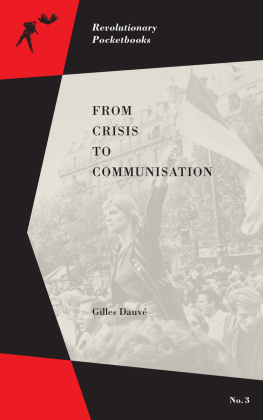

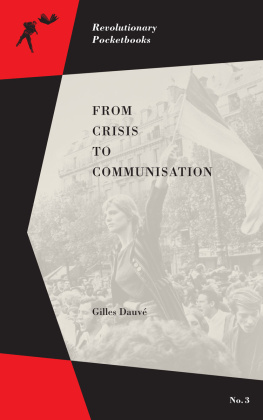



 CONTENTS
CONTENTS